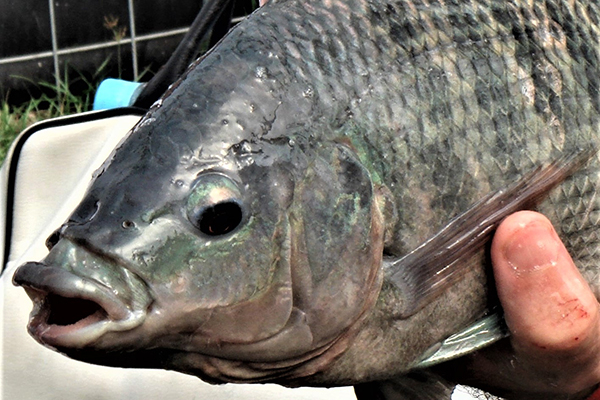
Aquafeeds
Balancing protein and energy in Nile tilapia feeds
An analysis of the effects of protein and energy intake shows no physiological basis for an optimal P:E ratio for tilapia.
Health & Welfare
Immunized Nile tilapia broodstock can mount a protective antibody response to Tilapia Lake Virus and transfer antibodies to progeny.

Aquafeeds
An analysis of the effects of protein and energy intake shows no physiological basis for an optimal P:E ratio for tilapia.
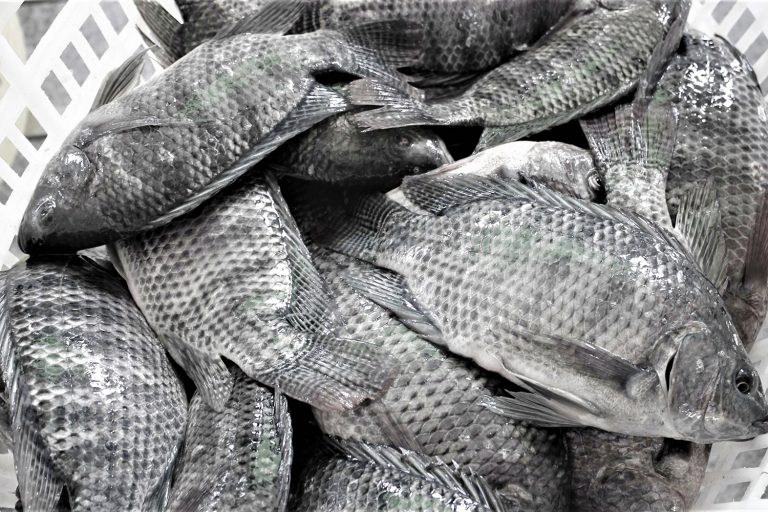
Health & Welfare
Trends in the use of additives in small-scale fish farming in Egypt show the need to establish costs and benefits and promote their appropriate use.
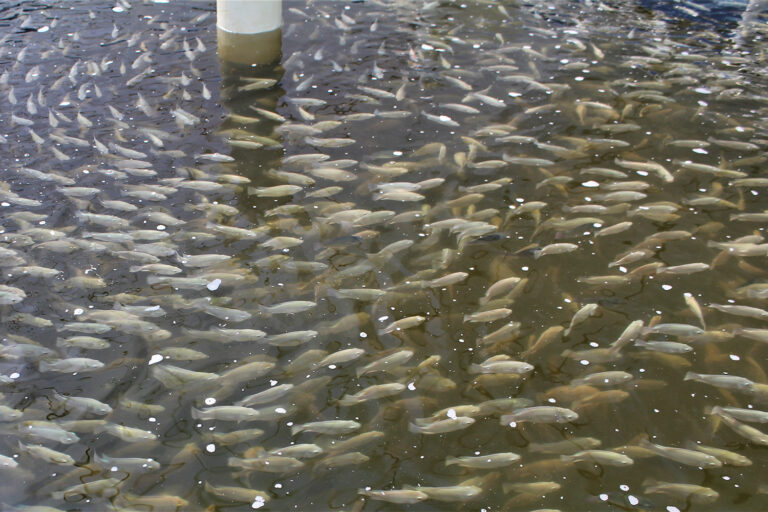
Health & Welfare
E. faecium is a potential probiotic for Nile tilapia, showing improved growth rates, reduced mortality in a challenge with S. agalactiae.
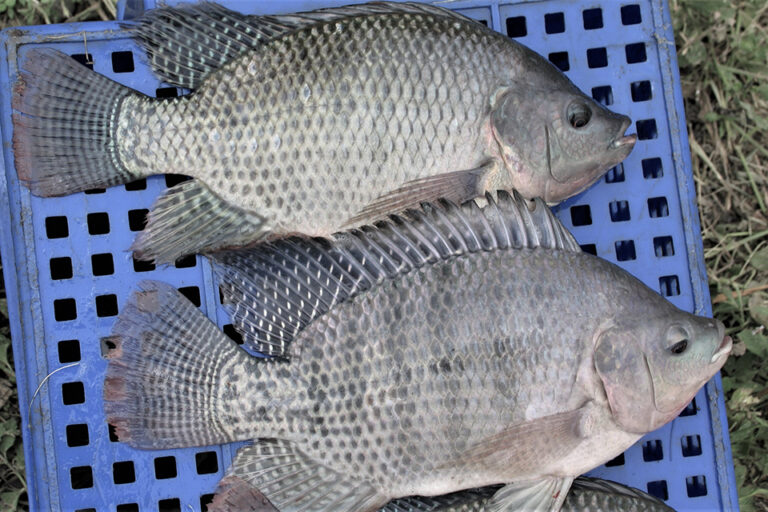
Health & Welfare
Genomic prediction markedly outperformed pedigree-based prediction, highlighting the potential to improve feed efficiency traits in Nile tilapia.
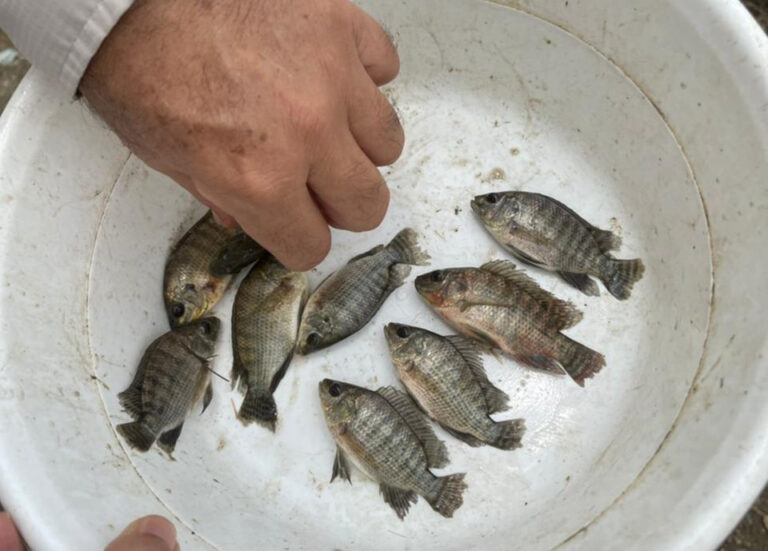
Responsibility
Analysis of a tilapia fingerlings biofloc farm showed it had emergy indicator values characteristic of potentially sustainable production.
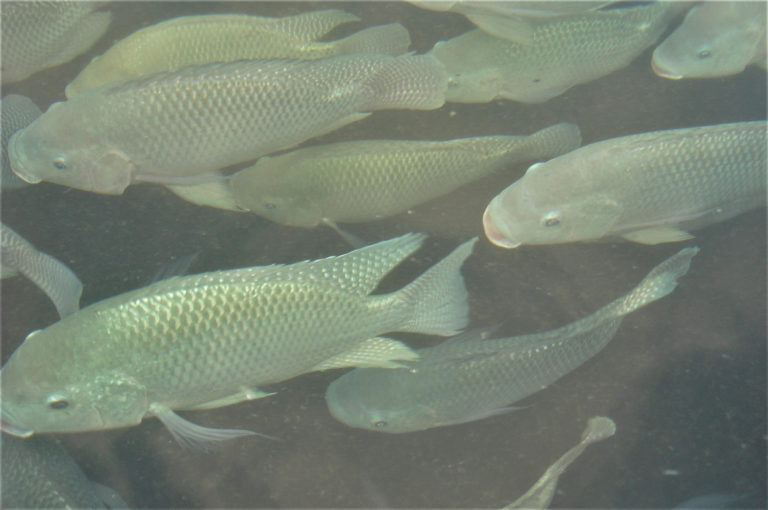
Health & Welfare
Evaluation of swimming in Nile tilapia shows critical swimming speed is heritable and can predict fish growth performance.
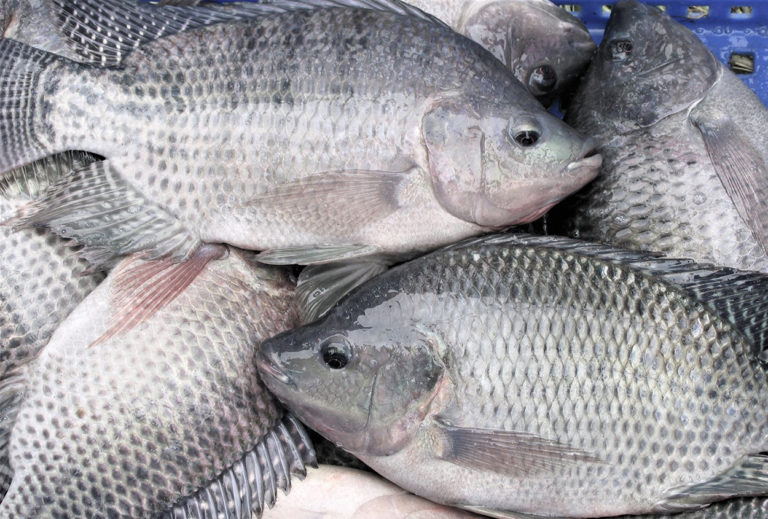
Aquafeeds
Evaluating off-flavor depuration time in Nile tilapia shows it is strongly reduced when farmers adopt a practice of feeding the fish.
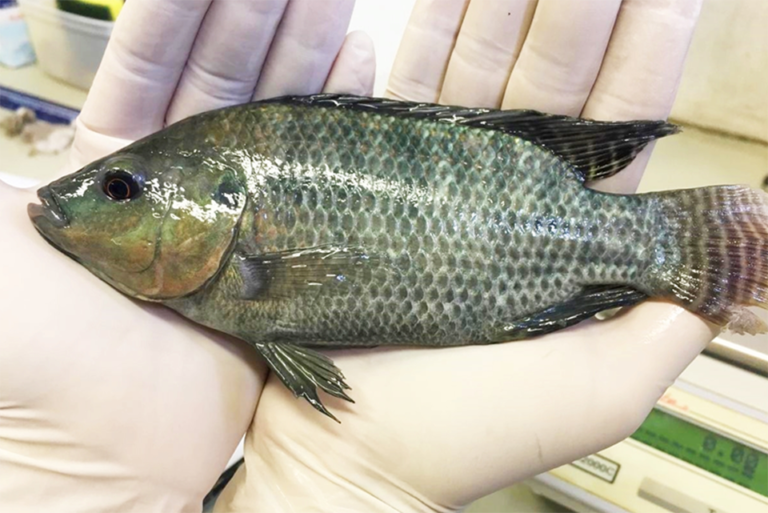
Aquafeeds
Exogenous enzymes phytase and a xylanase-β-glucanase mixture can, individually or combined, improve growth performance of juvenile Nile tilapia.
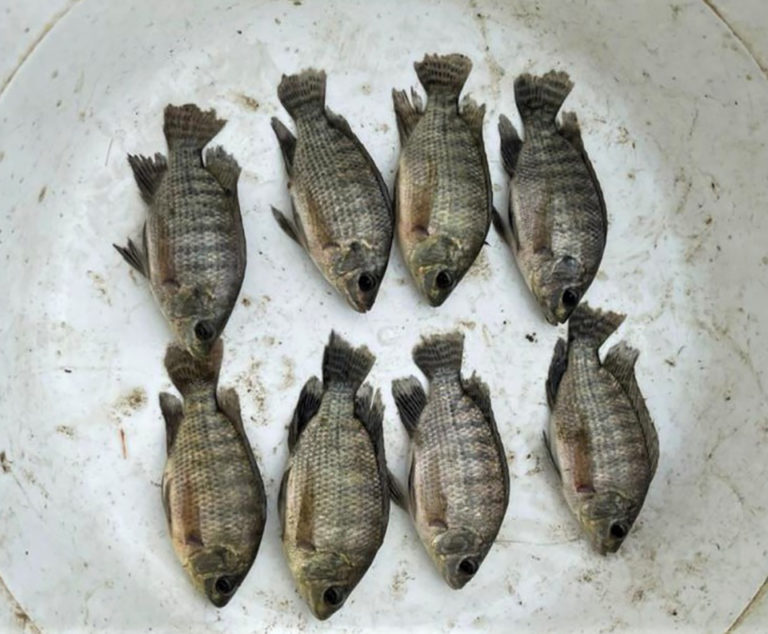
Aquafeeds
Inclusion of yeast-fermented poultry byproduct meal in Nile tilapia diets, at rates ranging from 11 to 25 percent, improved fish growth and health.
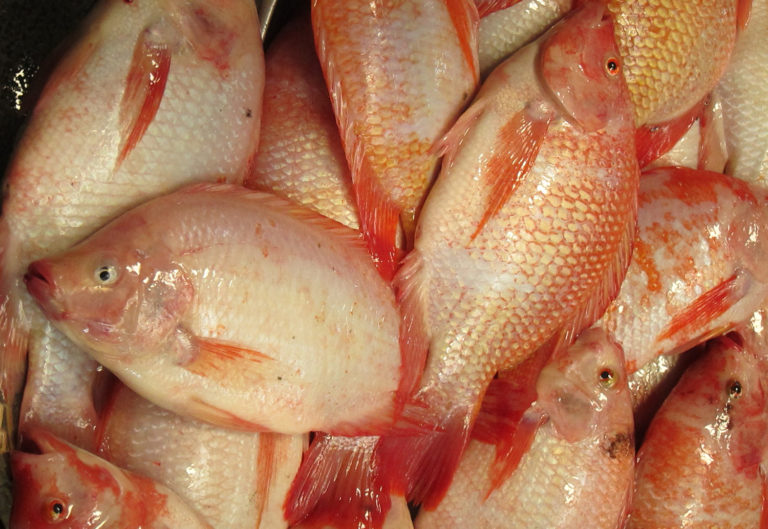
Aquafeeds
Nutritional study with Nile tilapia compared three microalgal diets to a reference diet containing fishmeal and fish oil levels found in commercial feed.
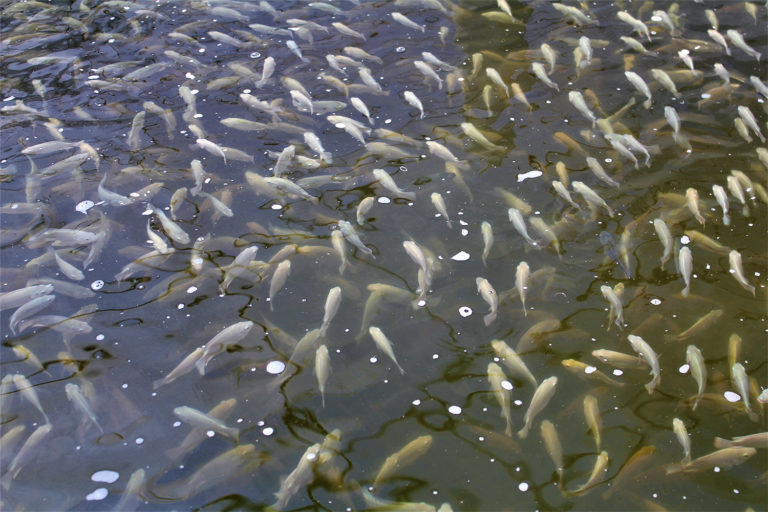
Aquafeeds
An assessment of the effect of type of dietary non-starch polysaccharides (NSPs) on the productivity of tilapia cultured in ponds.
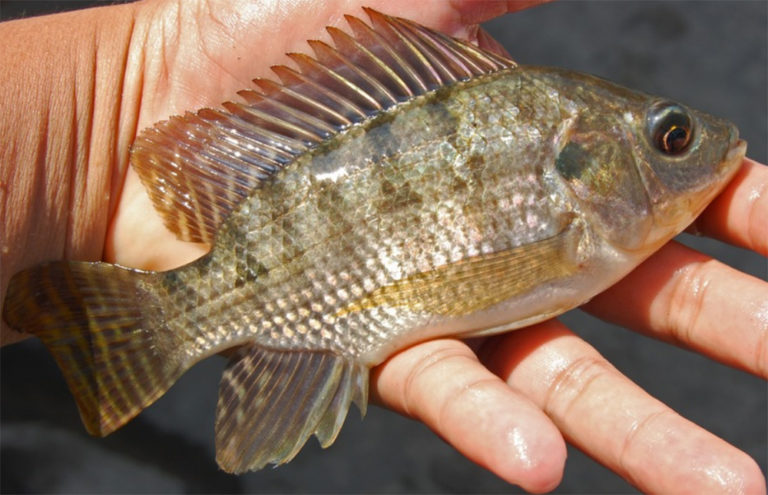
Responsibility
Trial evaluates the productive performance of Nile tilapia juveniles reared at high density using water reused from prior biofloc technology cultures.
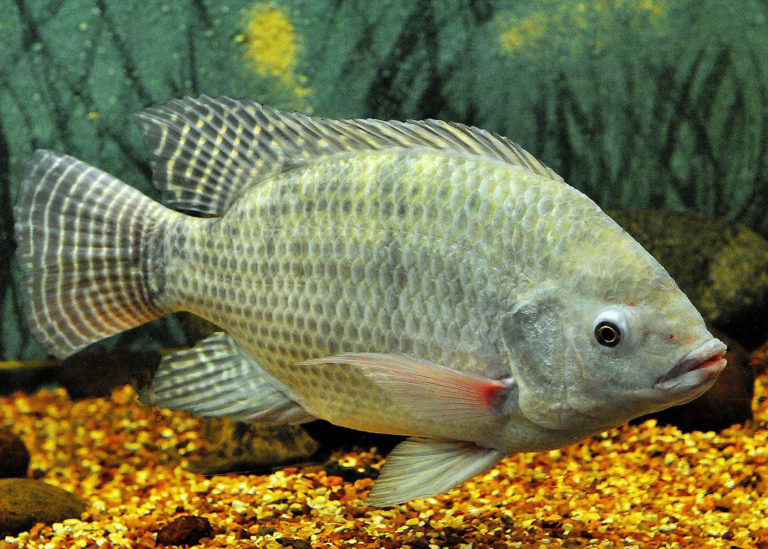
Intelligence
Study evaluates Nile tilapia in monoculture and polyculture with giant freshwater prawns in biofloc and recirculating aquaculture (RAS) conditions.

Intelligence
Estudio evalúa los sistemas de raceways en estanques para producir tilapia del Nilo alimentada con una dieta que incluye harina de soya de EE. UU. en condiciones de producción intensiva.
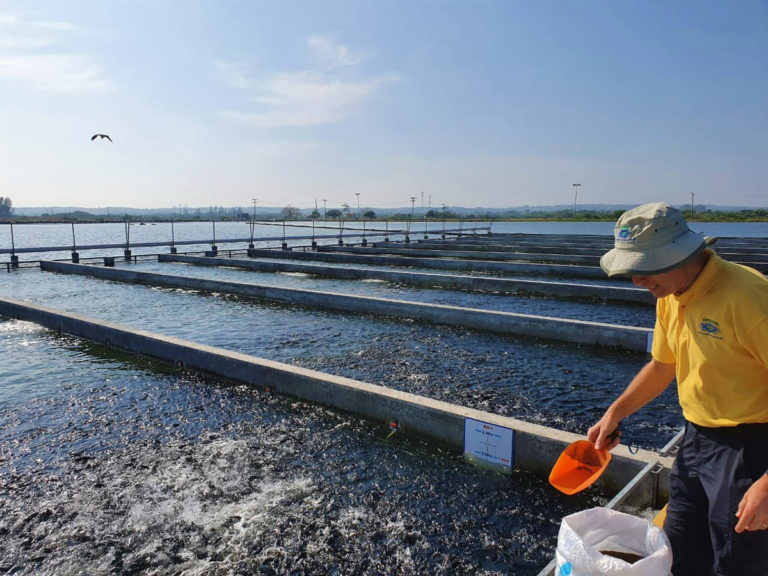
Intelligence
Study assesses in-pond raceway systems to produce Nile tilapia fed with a diet including U.S. soybean meal under intensive production conditions.